The Son Read online
Page 38
‘Shh,’ she said and kicked off the duvet, took his hand and led him to the bathroom. Ignoring the fact that he could see her in her underwear while she searched through the medicine cabinet. Found some twelve-year-old disinfectant, two rolls of bandages, some cotton wool and a pair of small scissors. She made him strip from the waist up.
‘As you can see it’s just a dent in my spare tyre,’ he smiled.
She had seen worse. She had seen better. She cleaned his injuries and taped cotton wool over the holes where the projectile had entered and exited. Then she wrapped a bandage around his waist. When she untied the handkerchief around his forehead, fresh blood started trickling from underneath the scab immediately.
‘Did your mother have a sewing kit anywhere?’
‘I don’t need—’
‘I said shh.’
It took four minutes and four stitches to sew the broken skin together.
‘I saw the briefcase in the passage,’ he said while she rolled several layers of gauze around his head.
‘That’s not my money. And the council has allocated us enough funds for the renovation work, so thanks but no thanks.’ She taped the edges in place and stroked his cheek. ‘There, that ought to—’
He kissed her. Right on the lips. Then he let go of her.
‘I love you.’
Then he kissed her again.
‘I don’t believe you,’ she said.
‘You don’t believe I love you?’
‘I don’t believe you’ve kissed other girls. You’re a lousy kisser.’
The laughter made his eyes sparkle. ‘It’s been a long time. Remind me, please?’
‘Don’t worry about getting it right. Just let it happen. Kiss me lazily.’
‘Lazily?’
‘Like a soft, sleepy snake. Like this.’
She cradled his head gently between her hands and raised her lips to his. And it struck her how strangely natural it felt, as if they were two children playing an exciting but innocent game. And he trusted her. Like she trusted him.
‘Do you see?’ she whispered. ‘More lips, less tongue.’
‘More clutch, less gas?’
She giggled. ‘Exactly. Let’s go to bed.’
‘What will happen there?’
‘We’ll just have to see. How’s your side? Will it be all right?’
‘All right for what?’
‘Don’t play the innocent with me.’
He kissed her again. ‘Are you sure?’ he whispered.
‘No. So if we wait too long . . .’
‘Let’s go to bed.’
Rover got up and straightened his back with a groan. In his excitement he had failed to notice that his back had seized up; it was like when he made love to Janne, who stopped by from time to time to ‘see what he was up to’. He had tried explaining that tinkering with the motorbike and tinkering with her had many similarities. That you could keep going in the same fixed position without being aware of aching muscles or time passing. But when you were done, then it was payback time. She had enjoyed the comparison. That was so like her.
Rover wiped his hands. The job was complete. The last thing he had done was attach a new exhaust pipe to the Harley-Davidson. It was like crossing the ‘t’ and dotting the ‘i’. Like when the piano tuner plays a piano he has just tuned. Just for the sheer fun of it. You could produce an extra 20 b.h.p. simply from modifying the exhaust pipe and the air filter, but everyone knew that the exhaust pipe was mainly about the sound. Getting it to produce that lovely, burring, juicy bass which didn’t sound like anything else Rover had ever heard. Of course he could turn the key right away in order to listen to the music of the engine to confirm everything he already knew. Or he could save it for tomorrow morning, like a present to himself. Janne always said that you should never postpone your pleasures, that there was no guarantee that you would live another day. He guessed that was Janne being Janne.
Rover wiped the oil off his fingers with the rag and went to the back room to wash his hands. Looked at himself in the mirror. The oil smears on his face that looked like warpaint and the gold tooth. As usual he noticed how other needs announced themselves now that he was done; food, drink, rest. It was a great feeling. But there was also the strange emptiness that followed such an achievement. A ‘Now what?’ A ‘What’s the point of it all?’ He chased the thoughts away. Looked at the warm water pouring from the tap. Then he stopped. Turned off the water. A sound had come from outside the garage. Janne? Now?
‘I love you too,’ Martha said.
At one point he had stopped – both of them panting, sweating, flushed – dried the sweat between her breasts with the sheet which she had pulled off the mattress, and said that they might find them here, that it was dangerous. And she had replied that she didn’t scare easily once she had made up her mind. And that incidentally – if they really had to talk – she loved him.
‘I love you.’
Then they carried on.
‘It’s one thing for you to stop supplying me with weapons,’ the man said as he peeled the thin glove off his hand. It was the biggest hand Rover had ever seen. ‘It’s another when you start supplying my enemy, yes?’
Rover didn’t struggle. He was being held by two men; a third was standing next to the big man, aiming a pistol at Rover’s forehead. A pistol Rover knew only too well because he had modified it himself.
‘Giving that boy an Uzi is like telling me to go to hell. Was that what you wanted? To send me to hell?’
Rover could have replied. Said that given what he already knew about the Twin, he guessed that was where he had come from in the first place.
But he didn’t. He wanted to live. Just for a few more seconds.
He looked at the motorbike behind the big man.
Janne had been right. He should have started it. Closed his eyes and listened. He should have stopped to smell the flowers. It’s such an obvious truth, it’s so hackneyed and yet so impossible to comprehend until you stand at the threshold and you realise how banal it really is: that the only guarantee you have in life is that you’re going to die.
The man put his gloves down on the worktop. They looked like used condoms. ‘Now let me see . . .’ he said, glancing around at the tools mounted on the walls. He pointed a finger at them as he chanted in a low voice: ‘Eeny, meeny, miney . . .’
38
DAWN WAS STARTING to break.
Martha lay close to Sonny with her feet entwined in his. Heard the change to the steady sleeping rhythm in his breathing. But his eyes were still shut. She caressed his stomach and saw a small smile on his lips.
‘Good morning, lover boy,’ she whispered.
He grinned from ear to ear, but pulled a face as he tried to turn over to look at her.
‘Does it hurt?’
‘Only my side,’ he winced.
‘The bleeding has stopped, I checked a couple of times last night.’
‘What? You took liberties with me while I was asleep?’ He kissed her on the forehead.
‘I thought you took a few liberties of your own, Mr Lofthus.’
‘It was my first time, remember,’ he said. ‘I don’t know the meaning of liberties.’
‘You’re a very good liar,’ she said.
He laughed.
‘I’ve been thinking,’ she said.
‘Yes?’
‘Let’s leave. Let’s leave right now.’
He didn’t reply, but she sensed his body stiffen. And she felt the tears come, suddenly and violently as if a dam had burst. He rolled over and held her.
He waited until her crying had subsided.
‘What did you tell them?’ he asked.
‘I said that Anders and I couldn’t wait until summer,’ she sniffed. ‘That we were going to end this right now. Or at least I was. And then I left. I went outside. Ran down to the high street. Hailed a cab. I saw him come running after me with that bloody mother of his at his heels.’ She laughed out loud, then she started cr
ying again. ‘I’m sorry,’ she sobbed. ‘I’m so . . . so stupid! Dear God, what am I doing here?’
‘You love me,’ he whispered into her hair. ‘That’s what you’re doing here.’
‘And what? What kind of person loves a man who kills people, who is doing everything he can to get himself killed, and who eventually will be. Do you know what they call you on the Internet? The Buddha with the Sword. They’ve interviewed former inmates who portray you as some kind of saint. But do you know something?’ She dried her tears. ‘I think you’re just as mortal as everyone else I’ve seen come and go at the Ila Centre.’
‘We’ll go away.’
‘Then we have to do it now.’
‘There are two more to go, Martha.’
She shook her head, the tears began to flow again and she hammered her fists into his chest with impotent rage. ‘It’s too late – don’t you understand? Everyone is looking for you, everyone.’
‘Only two more left. The man who decided that my father must be killed and made it look as if he was the mole. And the mole. Then we’ll leave.’
‘Only two left? You only have to kill another two people and then we can escape? Is it that easy for you?’
‘No, Martha. It isn’t easy for me. None of them were easy. And it’s not true what they say, that it gets easier. But I have to do it, there’s no other way.’
‘Do you really think you’ll survive?’
‘No.’
‘No?’
‘No.’
‘No! But in God’s name, then why are you talking about—’
‘Because you can only plan to survive.’
She fell silent.
He stroked her forehead, her cheek and her throat. And then he started talking. Quietly and slowly, as if he had to be sure that every word he chose was the right one.
She listened. He told her about his childhood. About his father. About his death and about everything that had happened since.
She listened and understood. Listened and didn’t understand.
A ray of sunshine had crept in between the curtains by the time he had finished.
‘Listen to yourself,’ she whispered. ‘You know this is insane, don’t you?’
‘Yes,’ he said. ‘But it’s the only thing I can do.’
‘The only thing you can do is kill a lot of people?’
He took a deep breath. ‘All I ever wanted was to be like my father. When I read that suicide note, he disappeared. And so did I. But then – in prison – when I heard the true story of how he gave his life for me and my mother, I was born again.’
‘Born again to do . . . this?’
‘I wish there was another way.’
‘But why? To fill your father’s shoes? Because the son must . . .’ She narrowed her eyes, forcing out the last tears. Promising herself that they would be the last. ‘. . . finish what his father couldn’t?’
‘He did what he had to do. I’m doing what I have to do. He died for us. When I’m done with this, I’m done. I promise you. Everything will be all right.’
She looked at him for a long time. ‘I need to think,’ she said at last. ‘You go back to sleep.’
He slept while she lay awake. It wasn’t until the birds started singing outside that she, too, fell asleep. And she was sure of it now.
She was crazy.
She had been so from the moment she saw him.
But she hadn’t realised that she was just as mad as him until she let herself into the yellow house, found Agnete Iversen’s earrings on the kitchen counter and put them on.
Martha was woken by the sound of children playing in the street outside. Cries of joy. Small running feet. She thought of how innocence walks hand-in-hand with ignorance. How insight never clarifies, only complicates. He slept so peacefully next to her that for a moment she thought he was already dead. She stroked his cheek. He muttered something, but didn’t wake up. How could a hunted man sleep so soundly? The sleep of the just. It was said to be good.
She slipped out of bed, got dressed and went down to the kitchen. She found some coffee, but nothing else. The freezer she had been sitting on in the basement, perhaps he had a frozen pizza or something. She walked down the basement steps and grabbed the freezer handle. It was locked. She looked around. Her eyes fell on the nail in the wall and the key with the illegible tag. She took the key and inserted it in the lock. Turned it. Voilà. She flipped open the lid, leaned in and felt the chill against her chest and throat, then she let out a short scream and dropped the lid. Turned round and sank down with her back pressed against the freezer.
She remained on her haunches, breathing hard through her nose. Tried to blink away the sight of the body that had been staring up at her with an open, white mouth and ice crystals on the eyelashes. Her pulse was so fast that she felt faint. She listened to her heart. And to the voices. There were two of them.
One of them screamed in her ear that she was mad, that he was mad, a killer, that she had to run up the stairs and get out of the house now!
The other told her that this body was simply a physical manifestation of something she already knew and had accepted. Yes, he had killed people. People who deserved to die.
The screaming voice ordered her to stand up. It drowned out the voice telling her that this was the panic she would inevitably have to experience at some point. She had made a choice last night, hadn’t she?
No, she hadn’t.
She knew it now. That the choice of whether to jump down the hole and follow the rabbit, take the step into his world, or to stay here in the normal world, was being made here and now. This was her last chance to walk away. The next few seconds were the most important in her life. Her last chance to . . .
She got up. She was still dizzy, but she knew she could run fast. He would never catch her. She inhaled oxygen into her lungs and the blood transported it to her brain. She leaned against the freezer lid, saw her own reflection in the glossy surface. Saw the earrings.
I love him. That’s why I’m doing this.
Then she opened the lid again.
The body had bled over most of the food. The design on the Frionor boxes seemed rather dated. They must be at least twelve years old, that sounded about right.
She concentrated on her breathing, on her thoughts, forcing away anything that wasn’t helpful. If they were going to eat, she had to go to a shop. She would ask one of the children where the nearest supermarket was. Yes, that was what she was going to do. Eggs and bacon. Fresh bread. Strawberries. Yogurt.
She closed the lid. Pressed her eyes shut. She thought she was going to cry again. But instead she started laughing. The hysterical laughter of a person in free fall down the rabbit hole, she thought. Then she opened her eyes and walked towards the stairs. At the top of the stairs, she realised she was humming a tune.
That you’ve always been her lover and you want to travel with her.
Mad.
. . . And you want to travel blind and you know that she will trust you.
Mad, mad.
. . . for you’ve touched her perfect body with your mind.
Markus was playing Super Mario Brothers by the open window when he heard a door slam outside. He looked out. It was the pretty lady. Or at least she was pretty today. She walked from the yellow house and down to the gate. Markus remembered how the Son had lit up when he’d told him that she was the one he had seen enter the house. Not that Markus understood much about such things, but he had an inkling that the Son was in love with her.
The woman went over to the little girls who were playing with skipping ropes and asked them a question. They pointed and she smiled, called out something to them and walked quickly in the direction they had indicated. Markus was about to return to his game when he noticed that the curtains in the bedroom were open. He grabbed his binoculars.
It was the Son. He was standing by the window with his eyes closed and his hand resting on his side, on a bandage. He was naked and smiling. He looked happy.
Like Markus on Christmas Eve, just before he unwrapped his presents. No, change that, the next day, when he woke up and remembered the presents he had been given the night before.
The Son took a towel from the cupboard, opened the door and was about to close it when he stopped. He looked to the side, down at the table. Grabbed something lying there. Markus zoomed in.
It was a book. Bound in black leather. The Son opened the book and began reading it. Then he dropped the towel. Sat down on the bed and carried on reading. He sat like this for several minutes. Markus saw his facial expression change and his body stiffen, freeze in a kind of crippled position.
Then he suddenly got up and hurled the book at the wall.
He grabbed the table lamp and subjected it to the same treatment.
He clutched his side, howled and slumped on the bed. Bowed his head, forcing it down with his hands which he had folded behind his neck. He sat with his body shaking as if he was having a fit.
Markus could see that something terrible had happened, but he didn’t know what. He wanted to run over there, say or do something to comfort him. He knew how. He would often cheer his mother up. Talk to her, remind her of the nice things they had done together, did she remember them? There weren’t many to choose between, only the same three or four events, so she always did. She would smile a kind of wistful smile and ruffle his hair. And then things would get better. But he hadn’t done any nice things with the Son. And perhaps the Son preferred to be alone, something Markus could relate to, he was like that himself. When his mother wanted to comfort him because someone had upset him, he would just get irritated; it was as if her kindness weakened him, validated the bullies who called him a sissy.
But the Son was no crybaby.
Or was he?
He had just got up and turned to the window; he was crying. His eyes were red and his cheeks streaked with tears.
What if Markus had been wrong, what if the Son was just like him? Weak, cowardly, someone who fled, ran away to hide, scared of getting a beating? No, no, he wasn’t like that, not the Son! He was big and strong and brave and he helped those who weren’t or who had yet to become strong.

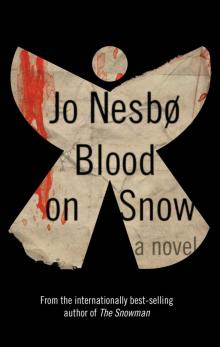 Blood on Snow: A novel
Blood on Snow: A novel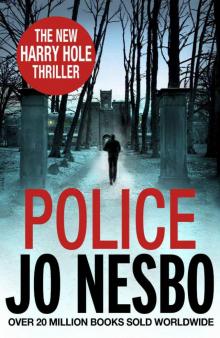 Police: A Harry Hole thriller (Oslo Sequence 8)
Police: A Harry Hole thriller (Oslo Sequence 8) Doctor Proctor's Fart Powder: The Great Gold Robbery
Doctor Proctor's Fart Powder: The Great Gold Robbery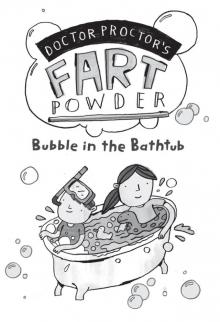 Bubble in the Bathtub
Bubble in the Bathtub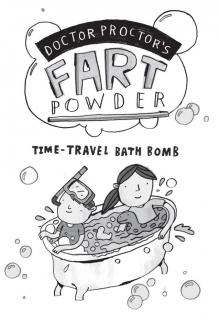 Doctor Proctor's Fart Powder: Time-Travel Bath Bomb
Doctor Proctor's Fart Powder: Time-Travel Bath Bomb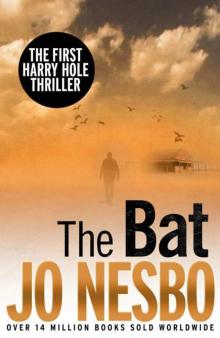 The Bat
The Bat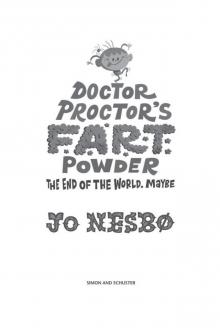 Doctor Proctor's Fart Powder: The End of the World. Maybe.
Doctor Proctor's Fart Powder: The End of the World. Maybe.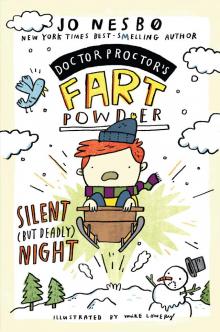 Silent (but Deadly) Night
Silent (but Deadly) Night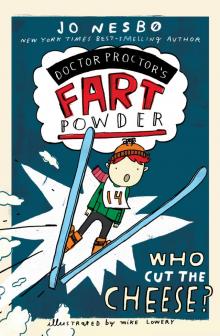 Who Cut the Cheese?
Who Cut the Cheese? Headhunters
Headhunters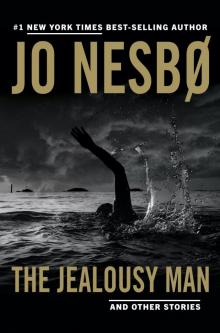 The Jealousy Man and Other Stories
The Jealousy Man and Other Stories Harry Hole Mysteries 3-Book Bundle
Harry Hole Mysteries 3-Book Bundle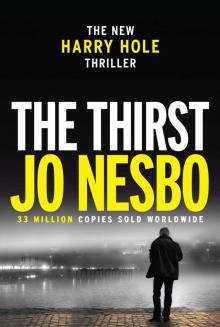 The Thirst
The Thirst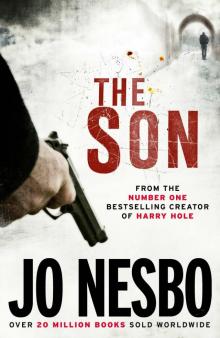 The Son
The Son The Redeemer
The Redeemer The Kingdom
The Kingdom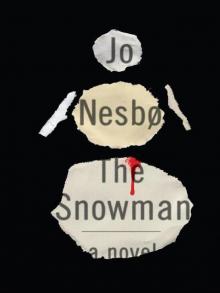 The Snowman
The Snowman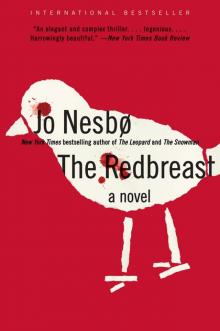 The Redbreast
The Redbreast Phantom
Phantom Macbeth
Macbeth The Leopard
The Leopard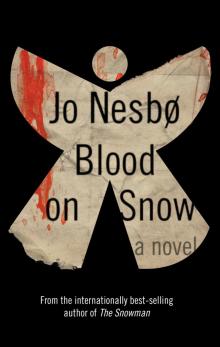 Blood on Snow
Blood on Snow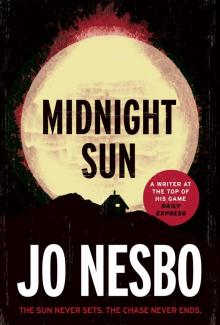 Midnight Sun
Midnight Sun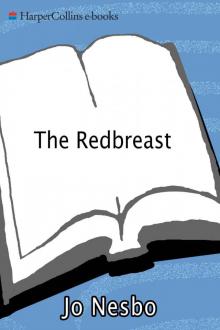 The Redbreast (Harry Hole)
The Redbreast (Harry Hole)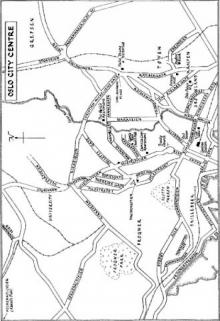 The Devil's Star
The Devil's Star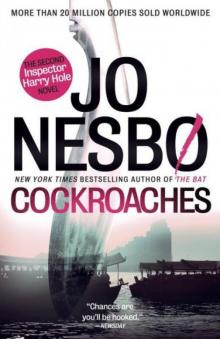 Cockroaches
Cockroaches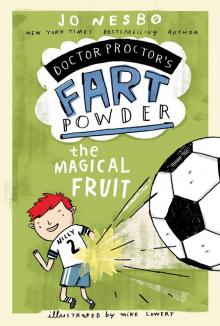 The Magical Fruit
The Magical Fruit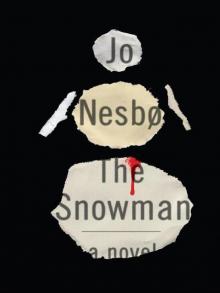 The Snowman: A Harry Hole Novel
The Snowman: A Harry Hole Novel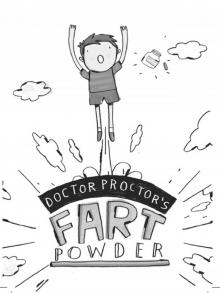 Doctor Proctor's Fart Powder
Doctor Proctor's Fart Powder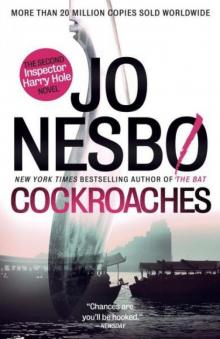 The Cockroaches
The Cockroaches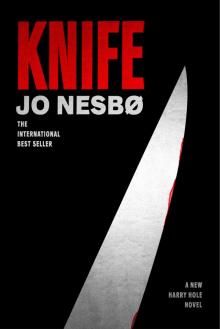 Knife
Knife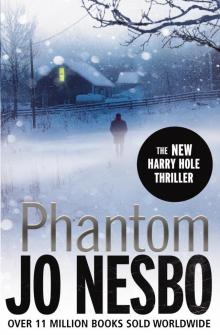 Phantom hh-9
Phantom hh-9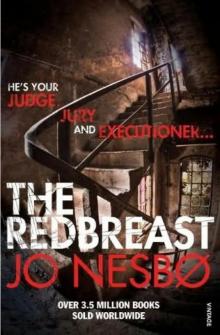 The Redbreast hh-3
The Redbreast hh-3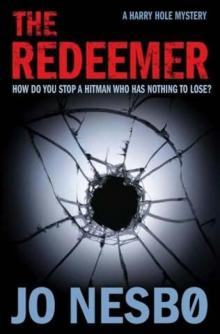 The Redeemer hh-6
The Redeemer hh-6 The Leopard hh-8
The Leopard hh-8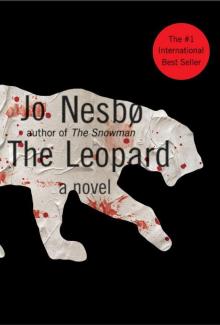 The Leopard: An Inspector Harry Hole Novel
The Leopard: An Inspector Harry Hole Novel The Great Gold Robbery
The Great Gold Robbery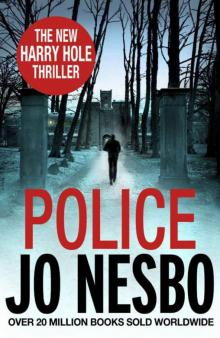 Police hh-10
Police hh-10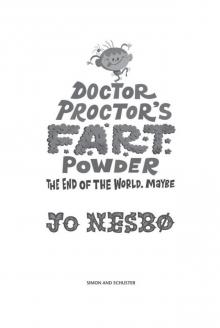 The End of the World. Maybe
The End of the World. Maybe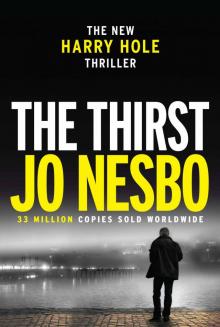 The Thirst: Harry Hole 11
The Thirst: Harry Hole 11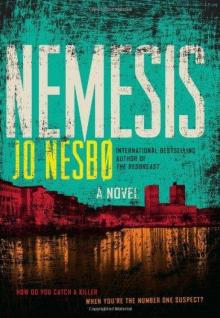 Nemesis - Harry Hole 02
Nemesis - Harry Hole 02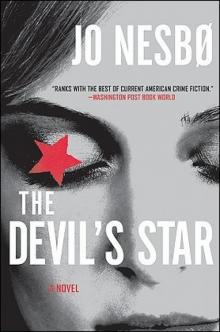 The Devil's star hh-5
The Devil's star hh-5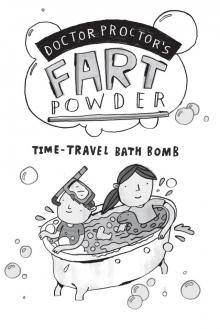 Time-Travel Bath Bomb
Time-Travel Bath Bomb